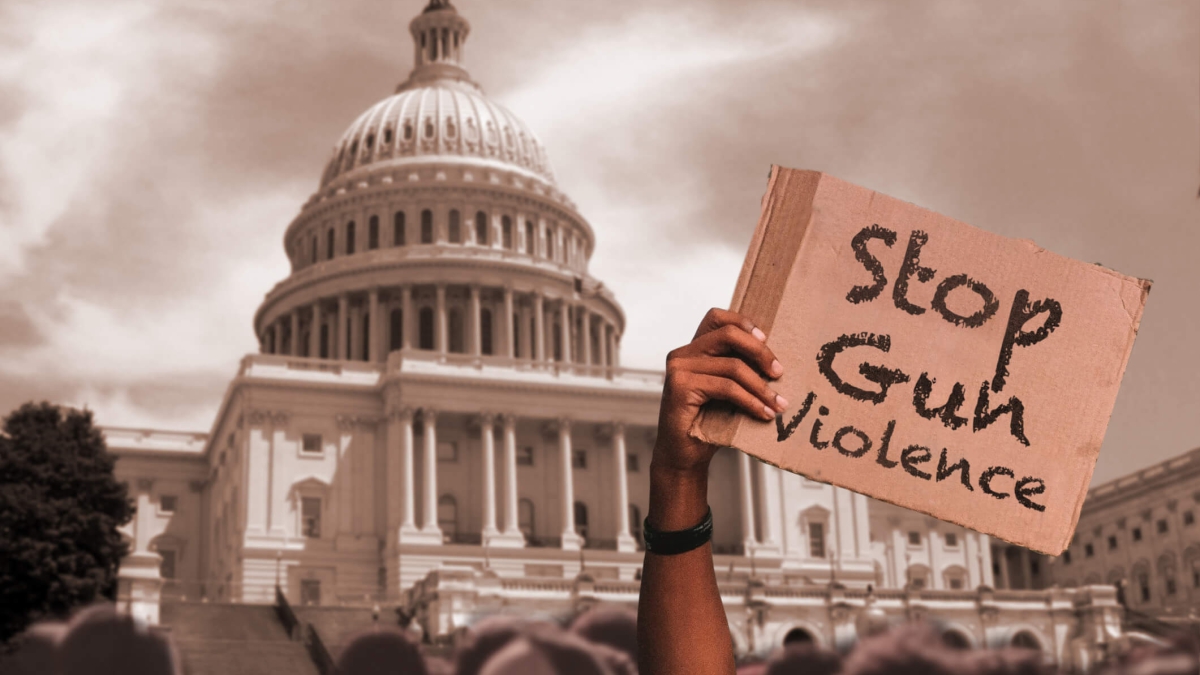When The NRA Supported Gun Control

The National Rifle Association argued for a number of restrictive gun laws in the 1960s, including the Gun Control Act of 1968. The NRA supported the ban on mail-order rifle sales after Lee Harvey Oswald had bought the rifle used to assassinate President Kennedy from a mail-order ad in an NRA magazine.
On its website today, the NRA is back to promoting easy access to a wide range of guns. After a series of recent gun-related massacres, they may want to think again of supporting sensible regulations as they did in the past—to prevent weapons from landing into the wrong hands. With the arrival of the internet, it’s much easier to widely promote and deliver deadlier weapons than it was in the 1960s. Regulations require a modern-day approach, beyond restricting online promotion.
A databank readily available to gun sellers is a no-brainer, like a credit check when applying for a bank loan—a way to cross-check and limit access to those with an unstable mental history and known violent tendencies.
The Treasure Coast gunman in the Orlando mass killing was on the FBI terror watchlist. That data is not available to gun dealers. A person with a record of threats of violence shouldn’t freely buy any weapon, let alone massive rounds of ammunition and a deadly assault weapon to go with.
People with a criminal history, a bad driving record or suspended driving licenses are routinely cited by law enforcement and insurance carriers. These reports are readily available to a police officer when stopping for a traffic violation or in a criminal investigation—no one would consider this a challenge to one’s personal privacy, to individual freedoms or about taking away of citizen rights.
The incitement of lawless actions, producing or distributing obscene materials, and students to advocating illegal drug use at a school-sponsored event aren’t protected by the First Amendment. Implementing practical gun safety regulations won’t jeopardize the Second Amendment either. It’ll only prevent individuals who show signs of a threat to themselves or the society from purchasing or owning any kind of firearm; stopping known terrorism suspects from acquiring military-grade weapons.
Online threats and hate speech should also be made available on a watchlist by social media outlets. Our law enforcement agencies need these tools. Both the shooters in Buffalo and Uvalde are known to have an online history of promoting violence and their intent to commit mass murder.
If this disturbed young man’s violence-prone history was known before the sale by the gun dealer, was the Uvalde massacre of little children be preventable? That would certainly be possible. A background check would result in denial of that transaction. A simple procedure by withholding the firearm and ammunition sale for just 48 hours, for example, if mandated, may have averted the carnage in Buffalo and Uvalde, as well as in many other killings elsewhere.
I wrote a column about the Buffalo shooting in the paper just a few days ago. It agonizes me to write again about another tragedy so soon. It’s hard to express the grief and outrage upon learning about and witnessing images of such suffering, time and again.
Thoughts of my grandkids flash in my head when I think of the innocent little ones who should be alive, playing, laughing, and growing to be Americans with productive futures—not be the victims of a preventable action.
What may then be done to stop such misery? Probably nothing as before, unless the lawmakers bind together in our state legislatures and in the U.S. Congress to confront this problem our nation faces. Or, the public will be left with plenty of questions and no answers.
A social media posting I saw that sums up the repeated history of such events: Mass shootings >> thoughts and prayers >>Facebook debates >> everyone forgets >> Congress does nothing >> crickets chirping >> mass shooting >>
Let’s pray that we do something this time.
Victor Ghalib Begg is author of the 2019 memoir “Our Muslim Neighbors—Achieving the American Dream; An Immigrant’s Memoir.” www.VictorBegg.com
( Source: Muslim Observer )
Topics: Gun Control, Gun Violence, United States Of America
Views: 788
Related Suggestions

















